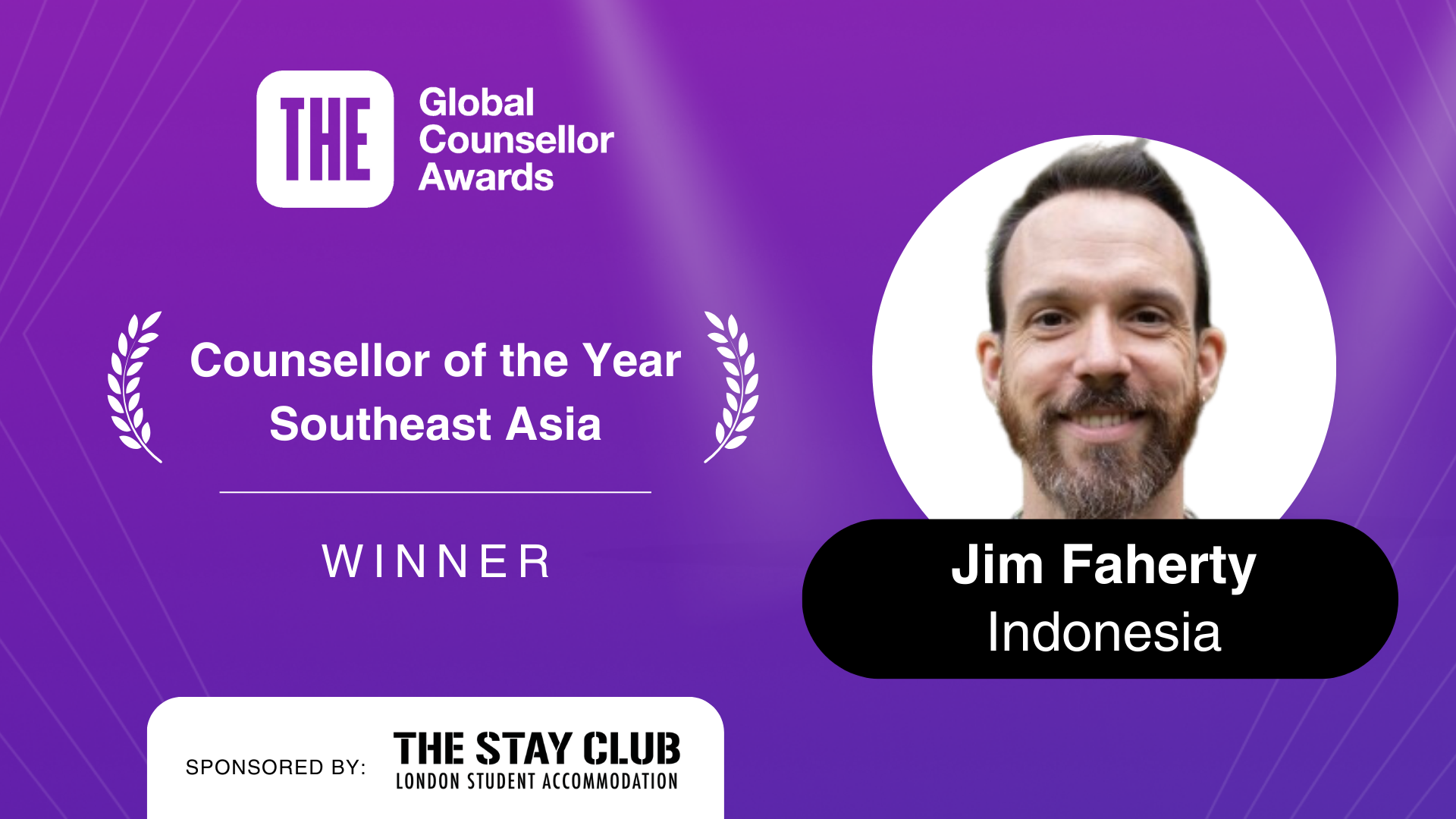Global Counsellor Award winner - Jim Faherty
Jim Faherty won the inaugural award for Counsellor of the Year- Southeast Asia. Here he shares his journey into the profession and what he would say to encourage new counsellors into the specialism

How does it feel to win Counsellor of the Year – Southeast Asia at the first ever Global Counsellor Awards?
It was honestly a huge surprise! It was a real honour to be nominated, especially since shortlisted candidates are nominated by other school counsellors. It felt great to have that recognition for the hard work, the outreach, the collaboration and the connection.
These are the cornerstones of my approach to work; I feel that in this industry it is so important to be connected to your counterpart colleagues across the region (and the whole world) so to have the opportunity to do this, and be recognised for it, is amazing.
Tell us a little bit about your career background and how you became a school counsellor.
Growing up, both of my parents were teachers so, of course, I never wanted to go into education! I actually started my career teaching English in China, which was a wild leap of faith for a young man from the sleepy town of Marlow Bottom in the UK.
I eventually completed a degree in Chinese (SOAS University of London) and worked in international student recruitment and admissions for the University of Liverpool and then Goldsmiths, University of London. In those roles I visited many international schools across Asia, and I’d always liked the look of the school counsellor role – working directly with students to guide them on their careers and university pathways, with some great perks (like long holidays).
I studied to make the transition (a graduate diploma in counselling psychology from the College of Allied Educators, Singapore) before I landed my first role as a university guidance counsellor in an International Baccalaureate school in Hong Kong in 2019.
What is the counselling profession like in your region?
As you might imagine, Bali has quite a transient community; that is true of both students and school staff. So it can be hard to maintain momentum, but for that reason I find that it’s crucial to maintain professional networks, and work together closely to support students.
Looking more broadly, in Indonesia there is the Network of Indonesian School Counsellors (NISC), which is really professional and very well connected. There are some wonderful, dynamic individuals working across the school network in Indonesia, many of whom have been in their roles for many years, and there is a wealth of experience and support available.
How can counsellors boost the profile of the profession within their region?
I would encourage all counsellors to make connections with other counsellors in their region; no matter how small or big, or how “professional” or informal the network is – it always helps to connect with others to hear how they are doing things and understand the challenges they face.
There are so many opportunities to learn from each other, but we need to be aware of who else is out there before that can happen.
I’ve also seen that in connecting with others, further opportunities (like professional development, learning about conferences or events, etc) can arise. And we are lucky to have many ways to connect across the profession now – not just face to face (which is still very important) but via social media and online channels too.
What sort of trends are you seeing in counselling within your region?
At Green School we are definitely seeing an increased interest in opportunities across Europe, and I think there are two reasons for this:
1) Families are becoming increasingly price-conscious, and Europe offers fantastic value for money when it comes to tertiary education.
2) Families are more aware of the political context and atmosphere, and are looking for places where their children can study in peace, stability and with minimal disruption. As the political scene in places like the US and UK becomes more fractious, families seem to be looking for alternatives which can give them a deeper sense of stability.
What advice would you give to anyone thinking about joining the profession?
Go for it, and get ready to join one of the most supportive industries filled with incredible individuals, great listeners and open-hearted collaborators. There is a reason why so many school counsellors stay in the role (even as they move between different schools) – you get to see the best of people, and it’s a privilege to be part of our students’ lives in that way.



